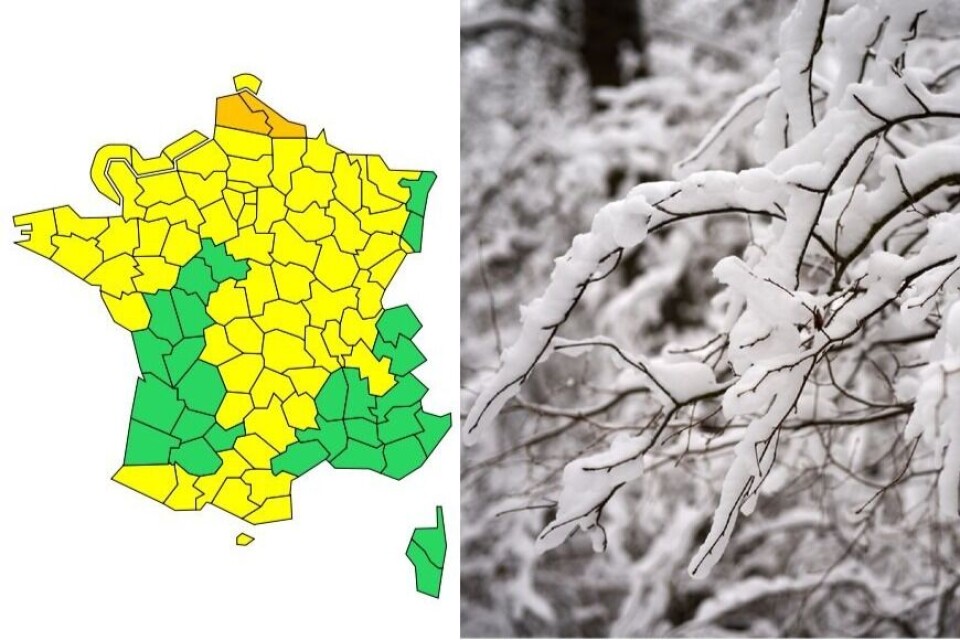-
Ryanair confirms routes to Dole-Jura airport maintained in summer 2026
Airline previously said that more routes to France will be axed next year
-
Explosion at chemical plant near Lyon: where are other ‘at risk’ sites in France?
An estimated 2.5 million people live within a kilometre of a French Seveso site
-
Farmer blockades to continue on motorways over Christmas in south-west France
Protests are being maintained on the A64, A83 and A63 and on departmental roads
Nord and Pas-de-Calais on orange weather alerts for snow and ice
Three to five centimetres of snow is expected overnight. The orange alert may later be extended to other northwestern departments

[Update March 31 at 16:30 - There are now 11 departments under an orange weather alert for snow and ice: Somme, Seine-Maritime, Eure, Calvados, Orne, Creuse, Loire, Puy-de-Dôme and Haute-Loire have joined Pas-de-Calais and Nord.]
The departments of Nord and Pas-de-Calais have been placed under an orange weather warning for snow and ice today (March 31), as a cold front moves down over France from the Arctic.
🔶 2 dpts en #vigilanceOrange
— VigiMétéoFrance (@VigiMeteoFrance) March 31, 2022
Restez informés sur https://t.co/rJ24zzmmy4 pic.twitter.com/zRcrlMcLas
Northwestern France is already seeing rain showers, low temperatures and wind gusts of 50-60km/h this morning.
National weather service Météo France has forecast three to five centimetres of snowfall in the northern departments overnight tonight, a volume which could rise to 10cm locally. The alert therefore starts at midnight tonight.
The orange warning could be expanded to other departments including Somme – which is already on a yellow alert for snow and ice – as the day progresses, as the precipitation is expected to move south in the early hours of Friday morning.
The weather is also forecast to be unsettled this afternoon across northwestern France, with sleet and, stormy showers and possible hail. The wind will also pick up, with gusts of up to 80km/h or even 90km/h in coastal areas.
The snow will move on from Nord and Pas-de-Calais in the early afternoon tomorrow, although the wind will remain strong.
A total of 66 departments across the country are also under a yellow weather alert, many of them for snow and ice.
You can find out more about the weather forecast on the Météo France website.
Do I need to do anything?
The snowfall could affect road traffic and other transports in the departments under a weather alert, increasing the risk of accidents.
Local residents are advised to keep up to date with advice from local authorities and reduce the number of journeys they take if possible.
If you do need to drive, you should make sure that your vehicle is fitted with the appropriate equipment, including snow tyres. It may also be useful to carry some food and blankets in your car, in case you get stuck.
Related articles
Winter is back: where is snow expected in France this week?
Homes evacuated: Dry weather leads to multiple wildfires across France
Climate change in France: People ‘do not understand what’s coming’
























